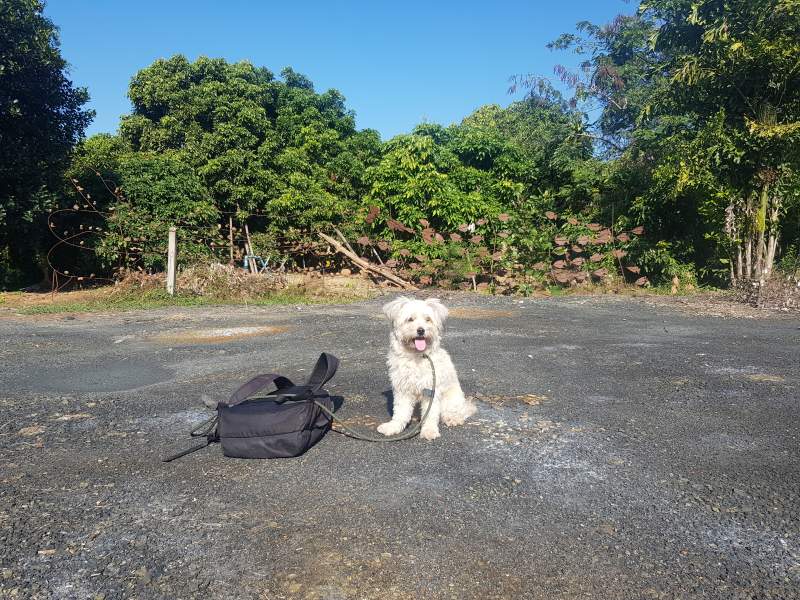Introduction: Understanding the Full Commitment of Puppy Ownership
Bringing a puppy into your life is a joyful and rewarding decision, but it is also a major commitment. Responsible puppy ownership goes far beyond picking out a cute new friend—it involves understanding and preparing for a range of financial, time, and emotional demands. Before adopting, it is essential to appreciate the many aspects that make up the true cost of raising a happy, healthy dog.
The Many Sides of Puppy Ownership
Caring for a puppy touches every part of your life. There are visible costs, like buying food or toys, and hidden ones, such as the hours spent training or the stress that comes with round-the-clock care. These responsibilities do not end after the first few weeks—they affect your daily routine, your budget, and even your well-being for many years.
Gaining a clear picture of what puppy care truly involves helps prevent regret or sudden rehoming. Many abandoned pets result from owners who did not fully understand what they were taking on. With the right information, you can make a choice that’s best for both you and your future puppy.
Why Full Information Matters Before Adoption
We recommend taking time to gather all the details you need before bringing home a puppy. Understanding the demands ahead allows you to plan, reduce surprises, and protect both your new companion and your future self. Informed decisions increase the chances of a long, happy relationship and support better animal welfare in our communities.
The Three Big Investment Categories
Responsible puppy ownership can be divided into three main areas:
- Financial investment: Initial expenses like adoption fees, vaccinations, and setup costs, plus ongoing needs for food, health care, toys, and more.
- Time commitment: Daily routines of feeding, walks, play, and training, as well as special moments for vet visits and socialization.
- Mental and emotional investment: All the decisions, worries, learning, and love that come with caring for a young animal adjusting to your world.
Together, these create the foundation of successful puppy ownership and pave the way for future chapters on the details of these investments.
Financial Investment: Breaking Down the Costs
The Foundation: Initial Outlays
Bringing a puppy home often starts with adoption fees, which vary depending on shelter, breeder, or rescue organization. Expect to budget for first-time supplies, such as a bed, crate, leash, toys, and bowls. Initial vet fees—covering vaccines and the puppy’s first health checks—represent another essential cost. These setup expenses can be a surprise for many first-time owners but are crucial for a puppy’s immediate comfort and well-being.
New puppies also require basic care items, including high-quality food, grooming tools, and cleaning supplies for accidents. These may not seem like large costs individually, but together they can be substantial in the first few weeks. Think of these outlays as building blocks for a strong start.
The Recurring Reality: Monthly and Annual Expenses
After the excitement of early days, a steady stream of ongoing expenses begins. Food is a regular bill, and nutritional needs grow with your puppy. Preventive healthcare becomes routine, including flea and tick treatment, worming, and booster vaccinations. Regular veterinary checkups are necessary to keep your puppy healthy and catch any issues early.
Other significant ongoing expenses include:
- Professional training sessions to address behavior
- Grooming sessions, especially for long-haired breeds
- Insurance to help manage unexpected medical costs
It’s also smart to budget for replacing or upgrading toys, bedding, or collars as your puppy grows. These steady costs add up, making financial planning essential for responsible pet care.
Variables That Affect Your Budget
The size and breed of your puppy play a role in overall costs. Larger breeds usually need more food and may face higher vet bills. Where you live matters too; urban areas tend to have pricier services and limited access to affordable veterinary care.
Lifestyle factors, like using doggy daycare or taking your puppy on frequent trips, can increase your monthly spending. Careful consideration and planning make these costs manageable and keep surprises to a minimum as you develop your bond.
With this foundation in place, we can see that responsible puppy ownership is a long-term commitment requiring thoughtful financial planning.

Preventive vs. Reactive Care: The Economics of Good Health
The Value of Investing Early
Caring for a puppy goes far beyond providing toys and love. One of the smartest investments you can make is preventive care. This means focusing on things like high-quality food, regular veterinary checkups, early training, and socialization. These steps may seem like extra work (and an added expense), but they can save money, time, and emotional stress in the long run.
Preventive care also helps you build a strong and confident bond with your puppy. Early socialization and training help your puppy feel safe, lowering the chance of future behavioral problems. Good nutrition and regular health visits can prevent painful—and expensive—illness later. By putting in effort now, you reduce the risk of big surprises down the road, making life better for both you and your dog.
The Cost of Waiting: Reactive Care
When preventive steps are skipped, problems don’t just disappear—they usually get worse and more costly. For example, skipping early vaccinations or dental cleanings can lead to major illnesses or infections that are painful for your puppy and expensive to treat. Ignoring basic training can lead to behavioral challenges that may require more time, money, and even specialist help to solve.
Many owners who try to save on early costs end up spending more to handle emergencies or complex issues that proper care could have prevented. Fixing a single behavioral problem may cost hundreds of dollars in classes or consultant fees. Treating diseases that could have been avoided with vaccinations is even more expensive.
Real-World Lessons
Let’s look at an example. Investing $150 in puppy classes and a few preventive vet visits each year can help avoid behavior issues and major illnesses. If these are neglected, emergency vet bills or training interventions can cost $1,000 or more—a huge difference for most families.
Early investment leads to more predictable expenses and better outcomes, while waiting for problems can create stress, frustration, and unexpected costs. By choosing preventive care, you support your puppy’s health and happiness from the very start—laying a foundation for a lifetime together.
Ready to see what kind of time investment this all takes?
Time Commitment: The Hours Behind a Well-Adjusted Dog
Daily Demands in the First Year
Raising a puppy requires a true investment of time, especially during the first year. Owners should plan to dedicate several hours each day to their puppy’s needs. Training sessions, short and frequent, are needed to help puppies learn basic skills and adjust to home life. Regular exercise, such as walks and playtime, not only burns off energy but also stimulates mental growth. Supervision is key—it helps prevent accidents and avoids destructive behavior. Puppies are curious and learning constantly, often needing guidance and gentle redirection.
Typical routines may include:
- Five to ten minutes of training, three or four times daily
- At least 30-60 minutes of exercise, split throughout the day
- Multiple play and enrichment sessions
- Frequent bathroom breaks and ongoing monitoring
Neglecting daily investment can lead to lifelong behaviors that are difficult and costly to correct later on. The first year is especially intense, shaping temperament and habits for life.
How Time Needs Vary
Not every puppy will demand the same schedule. Breed has a significant impact: active breeds, such as retrievers or herding dogs, need more exercise and stimulation. Calm or smaller breeds might be satisfied with shorter walks and indoor activity. Temperament matters—a high-energy or anxious puppy may need more supervision, while an independent one may train faster but require creativity to keep engaged.
Developmental stage is another key factor. Young puppies need shorter, more frequent activities, while older puppies may enjoy longer training or play. Owners who pay attention to these needs help encourage healthy growth and confidence.
Beyond Daily Care: Weekly and Monthly Commitments
Puppy ownership’s time demands extend beyond everyday routines. Owners should plan for:
- Weekly training classes or social outings
- Monthly or as-needed grooming
- Routine veterinary visits for vaccinations, checkups, and advice
Scheduling socialization opportunities is also critical—introducing new people, animals, and environments helps prevent fear and behavior issues as the dog grows older.
Understanding this time commitment is a foundation for responsible and rewarding puppy ownership. A thoughtful investment today paves the way for a healthy, happy relationship tomorrow.
Time. Money. Heart.
Raising a puppy costs more than it seems. The excitement of a new dog hides a reality many underestimate—constant time demands, unplanned expenses, and emotional highs and lows. These aren’t rare moments—they’re daily life with a young, growing animal.
Each part of the journey asks for full attention. From sleep disruption to financial planning, the true cost of puppy ownership isn’t just monetary. It’s emotional resilience. It’s giving up evenings for training, weekends for socialization, and adapting your entire lifestyle around a tiny heartbeat that depends on you.



But the payoff is deep and lasting. Owners who invest early—time, patience, and love—often build stronger, more trusting bonds. A well-adjusted dog isn’t an accident; it’s the product of conscious commitment. And while the path is demanding, the reward is a lifelong companion who reflects every bit of that investment back in joy.
The Psychological Burden: Mental and Emotional Investment
The Mental Load: More Than Just a To-Do List
Welcoming a puppy into your home is a joyful experience, but it can also add a heavy mental load. During the early stages, sleep disruptions are common. Puppies often wake up at night for potty breaks or comfort, leaving owners feeling tired. This regular sleep loss adds up quickly and can impact mood and focus.
Decision fatigue is another challenge. Each day, owners make many choices about feeding, training, healthcare, and play routines. These small decisions can feel overwhelming after a while, especially for first-time puppy parents. There is also a sense of responsibility, as every choice can affect the puppy’s long-term well-being.
Emotional Challenges: Finding Balance
Raising a puppy involves strong emotions. Many owners feel anxiety about their puppy’s health and happiness. Worries might include illness, proper nutrition, or whether the dog is meeting social milestones. Training can also bring frustration, especially if learning is slower than expected or accidents occur in the house.
Balancing puppy care with work, family, and other responsibilities can be difficult. This juggling act may lead to guilt when the puppy is left alone or when owners feel unable to provide enough attention. Over time, these emotions can wear down even the most dedicated individuals if support is lacking.
The Science of Caregiving
Caring for a puppy is similar, in some ways, to raising a young child. The developmental psychology of caregiving shows that both the dog and the owner grow and learn together. Owners must develop patience, resilience, and adaptability as they nurture a puppy. This constant care requires attention, emotional investment, and self-regulation, building a long-term bond that can bring both joy and stress.
Recognizing these mental and emotional demands helps owners be kinder to themselves—and to seek support when needed. This crucial self-awareness lays the groundwork for a healthy, rewarding relationship built on understanding and empathy.
With a clear view of the emotional journey, puppy parents can better prepare for the long road ahead.
Long-Term Effects of Early Investment
The Power of Early Care on Lifetime Outcomes
Giving your puppy the right care and attention in their early months builds the path for a happy, healthy, and well-behaved dog. Consistent training, early socialization, nutritious food, and preventive healthcare shape both your dog’s behavior and their lifelong health. Puppies who get these essentials from day one are more likely to grow into confident adults, develop fewer behavioral problems, and form a stronger bond with their owners. This early foundation leads to a more rewarding relationship, with less frustration and fewer surprises down the road.
Hidden Costs of Skipping Early Training and Socialization
Neglecting training or socialization in puppyhood often leads to big problems later. Puppies left without clear boundaries, positive experiences, or safe routines can develop anxiety, aggression, or destructive habits. These issues are not just stressful—they are expensive and time-consuming to fix. Owners might need to pay for extra training, medical care, or even repairs at home. The emotional cost is high, too. Guilt, worry, and exhaustion from managing a difficult dog can wear down even the most loving owner.

Strengthening the Human-Animal Bond
Investing in your puppy early is about more than just obedience. It’s about building trust, affection, and understanding. Structured training and quality time help puppies learn to look to you for guidance, while regular play and gentle handling make them feel safe and loved. Science shows that a strong early bond can lower the chances an owner will rehome their dog or experience burnout. Being prepared, having access to resources, and learning together not only benefit your puppy—they also bring daily joy and lasting friendship.
Embracing the demands and joys of early investment shapes the rest of your journey together, laying the groundwork for a resilient, joyful partnership.
Coping Strategies and Support Resources
Effective Preparation Strategies
Starting off strong makes all the difference when welcoming a puppy into your life. One powerful tip is to research early. Learning about breed characteristics, training needs, and common challenges prepares you for what lies ahead. Creating a checklist of supplies such as bedding, toys, crate, grooming tools, and high-quality food can reduce decision fatigue later.
Pre-adoption education also helps prevent mistakes. Many shelters and breeders offer seminars or handouts on potty training, socialization, and puppy-proofing your home. Learning the basics before your puppy arrives sets the foundation for success and fewer surprises down the road.
Community and Professional Support Systems
No one should feel alone as a new puppy owner. Connecting with your local community provides emotional reassurance and practical advice. Examples include joining dog parks, breed clubs, or neighborhood pet groups. These communities offer tips on training, behavior, and health, and they create opportunities for safe puppy playdates.
Professional support is also valuable. Puppy classes led by certified trainers teach positive reinforcement and help with socialization. Your veterinarian is a go-to resource for health guidance, including vaccination schedules and nutrition. If possible, build a relationship with a local vet before your puppy needs care, so urgent visits feel less stressful.
There are also support networks online. Social media groups and forums let you share successes, setbacks, and questions with other owners. Sometimes, a kind word or shared experience makes even a tough day feel more manageable.
Technology and Services to Lighten the Load
Modern tools can ease daily demands. Scheduling apps help you keep track of feeding times, vet appointments, medication, or grooming routines. Subscription delivery services for food and supplies offer convenience and can help manage regular expenses.
Dog walking or pet sitting services provide relief when life gets busy. Professional trainers now offer virtual classes to help with basic obedience and solve early problems with expert feedback. Online videos and step-by-step guides supply training drills that fit into your daily routine.
Taking the time to prepare and reach out for support not only improves your puppy’s experience but also protects your own well-being. Being proactive helps you build a more joyful life with your new companion.
Making an Informed Decision: Is Puppy Ownership Right for You?
Assessing Your Readiness
Taking on a puppy affects every part of your life, so it is important to be honest about your current situation. Start by considering your daily routine, work hours, and financial stability. A practical self-assessment might include these questions:
- Do you have the time for daily walks, play, and training?
- Is your home suitable for a growing dog?
- Can you afford both expected and surprise expenses?
- Are all household members on board with this commitment?
It is also helpful to reflect on your stress levels and support network. Puppies bring a mix of joy and challenge. Responsible ownership means having both patience and a plan for tough moments.
Exploring Alternatives
Puppy care is rewarding, but not everyone can meet all the demands. If money, time, or space are limited, you may want to consider different options:
- Adopting an adult dog, who may need less training and supervision
- Fostering pets for short periods
- Volunteering at animal shelters
- Choosing lower-maintenance pets like cats, rabbits, or fish
Exploring alternatives can offer the experience of companionship while fitting your current lifestyle.
Matching Dog and Owner
Every breed has a unique personality and needs. High-energy dogs, like border collies, need extra exercise and mental challenges. Smaller or calmer breeds may suit people with limited mobility or space. Also, even puppies of the same breed can have very different temperaments. If possible, spend time with a potential puppy before you adopt.
Community support and education are strong foundations for success. Speak with veterinarians and trainers and join local groups for realistic advice on breeds and needs.
Remember, adopting a puppy is a long-term decision that shapes years of your life. Take time to make sure your household is ready, your resources are sufficient, and the match is right for both you and your future furry friend.
Conclusion: The Rewards Beyond the Investment
Weighing Costs Against Lifelong Rewards
Owning a puppy demands much more than just purchasing food or visiting the veterinarian. From the earliest days, every dollar, hour, and emotional effort shapes your pet’s future. Although the path is filled with early morning walks and the challenge of consistent training, these actions lay the groundwork for a strong, positive bond that lasts a lifetime.
The real value of responsible puppy ownership lies in the small successes: a wagging tail greeting you at the door, a calm response to a new visitor, or the comfort you feel in each other’s company. These moments are a direct result of your early investments in care, patience, and understanding. This partnership rewards you with unconditional trust, companionship, and countless joyful memories.
The Priceless Value of a Well-Adjusted Companion
A well-adjusted dog brings stability and happiness to a household. The effort put into early socialization, training, and preventive care often means fewer behavioral challenges and health problems later on. This makes daily life easier and more enjoyable for everyone in the family. The sense of achievement that follows a successful, healthy partnership with your dog is truly priceless. It’s not measured just in financial terms, but in the comfort, support, and mutual growth you share together.
Making Every Investment Count
Every responsible action—from setting routines to seeking help when needed—brings you and your puppy closer to a life of shared happiness. If challenges arise, remember that being well-prepared and leaning on community or professional support can ease the burden and help prevent future problems.
At the heart of this journey is the knowledge that you are shaping not only your puppy’s life but also your own. The joy, emotional growth, and companionship gained far outweigh the initial sacrifices. The commitment you make today is the foundation for a rewarding, lifelong bond that will continue to strengthen and enrich your life together.










